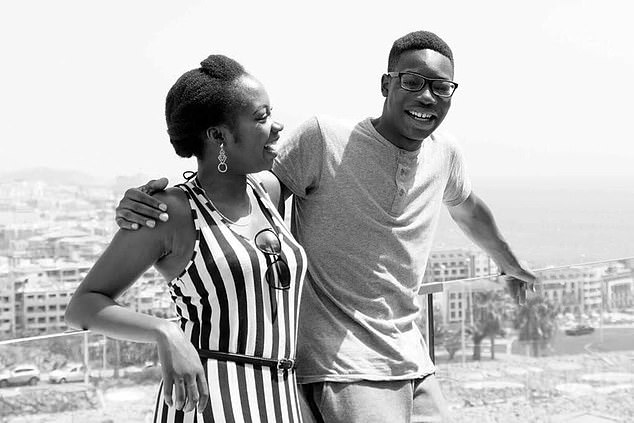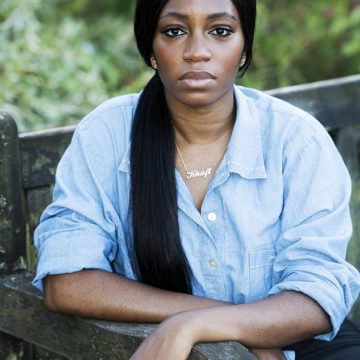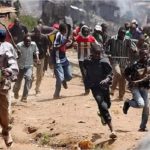When Khafi Kareem received the call on a June morning urgently summoning her to the family home, her first instinct was that there had been an accident. “My brother said it was about Alex, but he couldn’t tell me over the phone,” she recalls while speaking with Daily Mail of UK on Thursday.
But 20-year-old Alex — a sunny-natured young man who’d never been in trouble and was due to start university — had been gunned down as he left a shop near home in west London.
His last words as he lay dying on the pavement were ‘help me’. For his parents and three siblings, the loss of the baby of the family has proved devastating. Their grief is horribly compounded by the knowledge that police believe his promising life was taken in a case of mistaken identity.
“People hear about the death of a black boy on the street and assume that he was in a gang, that it’s a case of live by the gun, die by the gun,” is how Khafi, 30, puts it.
“After he was shot, nobody ever asked outright if he was in a gang,” she says. ‘But sometimes you could see the question mark in their eyes.
“People I knew said there must be more to it than a random act of violence, and one person asked if I was sure who my brother associated with. I told them yes, I was pretty sure. But it illustrated how, when a young black man dies, it is so easy for people to make assumptions
“It is just a shame that you have to fight that prejudice first before people can feel sorry about Alex or feel sad about what happened.”
It is one reason she has decided to grant this interview, anxious to pay tribute to her much-loved brother and show ‘another side to the story of a black boy’s life in London.’
Khafi’s decision to speak out comes laced with an extra layer of poignancy: for the past ten years, she has been a Metropolitan Police officer, working on the front line to combat the dozens of acts of gun and knife crime that unfold on the streets of the capital week in, week out.
In 2018 she was pictured alongside Commissioner Cressida Dick as the Met celebrated 100 years of women in the force.
While keen to emphasise that she is speaking out as a grieving sister, not a police officer, the irony of her position is not lost on her. “I’ve served time on a murder squad. I have seen so much grief, and I’ve always been really passionate about looking after victims and the people who are left behind after crime.
“But I never thought something like this would happen in my own family,” she says.
On some level it’s clear that today, two months after Alex was murdered and a fortnight after his family were finally able to hold his funeral, his death still hasn’t sunk in: Khafi, a gentle and articulate woman, frequently talks about her youngest brother in the present tense and admits she struggles to confront the finality of his absence.
“It’s still very surreal to me. People were saying that after the funeral, things get better, but seeing him go into the ground — in a way I’m feeling worse now because now I wake up every morning thinking ‘gosh, he’s really gone.’ It doesn’t seem real. I think in some ways everyone is still in shock,” she says.
While their family was from Nigeria, Khafi and her brothers are all first-generation Londoners, brought up in Shepherd’s Bush. Their mum, a nurse, raised them largely alone after separating from her geologist husband when Khafi was 12, and imbued all her children with a sense that the world was their oyster.
It paid off: Khafi and her two surviving brothers — who asked not to be named — all went to university and both brothers have carved out successful careers, one as a footballer in Australia, the other in banking.
“I was thinking about my brothers not long before this happened and thinking what an amazing job my mum has done,” she recalls. “We’ve all been brought up in London, and she had three sons, and we’ve all made successes of ourselves.”
“All of us wanted to look after him, so that’s what made everything so much more painful because any of us would have said we’d take the bullet for him,” she says, her eyes filling with tears.
She is able to summon a smile though, as she recalls some of her earliest memories of her ‘ball of energy’ brother, a boy who would run up and down the house from the moment he woke up.
“I remember one winter we were walking and came across a homeless person with no shoes on, and Alex was so upset for the man he started crying in the middle of the road, saying, ‘Why doesn’t he have shoes? It’s cold outside.’ I will always remember that. He just cared about people,” she says.
“He was very quiet when you first met him, but once he got to know you, or when he was with his friends or people he knows, he just opened up,” says Khafi. “He was so talkative and very funny.”
“We were all really proud of him. Three months before he died, Alex had also started a relationship with a girl called Mauritia who he met through mutual friends.
“She was the first girlfriend he had ever introduced to us and even at 20, he was really talking about settling down with her. They were talking about the future a lot,” says Khafi. She pauses, fighting her emotions. “Honestly he was just becoming a man. He was in such a good place and that’s what is so painful.”
“Alex had his 20th birthday at the end of March at the height of COVID-19 and normally we would all get together, but we were all taking the rules seriously, so we didn’t see each other to celebrate, though I spoke to him,” she says.
On the night of his death on June 8, Khafi says she was overcome with a sudden wish to call her brother at what she now realises is around the time he was killed. “Around midnight I had this urge to speak to him. Normally I do his hair and I had this sudden feeling that I should get in touch and ask him when he wanted me to go over,” she recalls.
“But then I realised it was late and I decided to leave it until the next day. Now I can’t stop thinking about whether if I had called it would have delayed him, and he might not have been killed.”
“We all went to identify Alex at the mortuary. It just looked like he was sleeping, and I wanted to shake him to say, ‘Wake up Alex, please.’ Just begging him really, begging for it not to be real.”
His body was not released for five weeks, meaning his funeral could not take place until the end of July.
“We were restricted on numbers because of Covid, but a lot of people came and stood outside,” she recalls. “That outpouring of love was lovely — you could see that Alex impacted on the lives of so many people even though he was so young. So, that made me feel better in a way.”
YOU SHOULD NOT MISS THESE HEADLINES FROM NIGERIAN TRIBUNE
More Shocks As Unemployment Data Exposes Misery Status Of Nigerians
BEFORE now, economic and finance experts found it difficult to assess the healthy nature of the labour market and how to measure the impact of government policies targeted at creating jobs because of lack of real time labour data. But on Friday, August 14, 2020, the concerns were only slightly eased as the National Bureau of Statistics (NBS) published second quarter (Q2):2020 labour statistics, the first report since Q3:2018…
MONDAY LINES: Obasanjo’s (D)Art Of Condolence
Ben Guriano of The Washington Post described them in 2018 as ‘taboo enforcers.’ These are trolls seeking to upend truth and subvert facts about the life and times of the dead. ‘Do not speak ill of the dead’ came originally from a Spartan philosopher, then it was latinated by the Romans to read De mortuis nihil nisi bonum – and got spread around the world like Chinese viruses. The black man, as in all cases, contracted the no-no and turned it into a religion, got drunk with it and won’t mind killing for it…
2.4 Million Households To Benefit From FG’s Stimulus Package — Presidential Aide
TO ensure food security for citizens, at least 2.4 million households will benefit from the Federal Government’s post-COVID-19 stimulus package, a presidential aide says. Dr Andrew Kwasari, Senior Special Assistant (SSA), to the President on Agriculture, disclosed this in an interview with the News Agency of Nigeria (NAN) on Sunday in Abuja. Kwasari spoke against the backdrop of projects anchored by the Nigerian Economic Sustainability Committee (NESC) to secure the economy against the effects of COVID-19…







